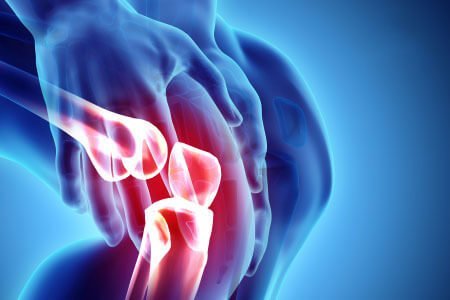Runner’s Knee
Types, Causes, Symptoms, Risk Factors, Complications, Prevention, Diagnosis and Treatment
What would you like to know?
What are the symptoms of Runner’s Knee?
Some common symptoms that indicate a person is suffering from this condition are:
- Pain in and around the kneecap
- Swelling, rubbing, grinding or clicking sound of the kneecap
- Kneecap that is tender to the touch
This pain is mostly felt when the individual is walking, climbing stairs, running, sitting with a bent knee for long, etc.

What are the risk factors of Runner’s Knee?
Certain risk factors that may predispose an individual to this condition are:
- Intense Training: When the intensity of training is increased suddenly, it may put greater pressure on the knee.
- Overuse and overtraining of the knee: It is most common in athletes.
- Injury: Injuries to the knee, hip may affect the biomechanics of the knee.
- Focal weakness: Individuals with underdeveloped thigh or hip muscles are more prone to the development of this condition.
- Obesity: It results in excessive pressure to the knees that makes obese individuals susceptible to the development of this condition.
- Gender: Females are at a greater risk of developing this condition since they usually have wider hips as well as slightly different knee alignment, as compared to men.
What are the complications of Runner’s Knee?
The major complication involved with this condition is the worsening of the knee pain and discomfort to the individual over time.
You may also interested in reading
Read More Information
References:
- Runner’s Knee. Healthline. Available at: https://www.healthline.com/health/runners-knee# Accessed on June 7, 2020.
- Runner’s Knee Pain. WebMD. Available at: https://www.webmd.com/pain-management/knee-pain/runners-knee#1 Accessed on June 7, 2020.
- Runner’s Knee Pain Syndrome. Hopkins Medicine. Available at: https://www.hopkinsmedicine.org/health/conditions-and-diseases/patellofemoral-pain-syndrome-runners-knee Accessed on June 7, 2020.
Disclaimer:
“The content of this publication has been developed by a third party content providerwho are clinicians and/or medical writers and/or experts. The information contained herein is for educational purpose only and we request you to please consult a Registered Medical Practitioner or Doctor before deciding the appropriate diagnosis and treatment plan.”



 Appointment
Appointment Second Opinion
Second Opinion WhatsApp
WhatsApp Call
Call More
More





